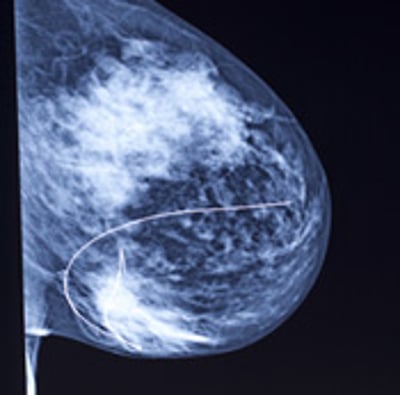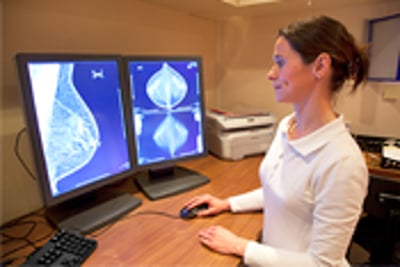FORCE's eXamining the Relevance of Articles for You (XRAY) program looks behind the headlines of cancer news to help you understand what the research means for you.
XRAY is a reliable source of hereditary cancer research-related news and information.
Learn more about the XRAY program
All XRAYs
Article : After mastectomy: reconstruct or not?
Most relevant for: Woman who are facing mastectomy
Today, more women know they can have breast reconstruction after removing their breasts for cancer treatment or risk reduction. But what about choosing not to undergo reconstruction? Roni Caryn Rabin writes about the experiences of women who decide against reconstruction in her New York Times piece “‘Going Flat’ After Breast Cancer.” (12/14/16)
Read More
Relevance: Medium


Quality of Writing: Medium-Low


Article : Headlines claim drug combination destroys tumor in 11 days—is this too good to be true?
Relevance: Medium


Quality of Writing: Medium-Low


Most relevant for: People with Her2-positive breast cancer
A recent IFLScience headline proclaimed "Remarkable Breast Cancer Trial Destroys Tumors in Just 11 Days." This sounds amazing but it leaves out key facts. First, the finding applies only to HER2-positive breast cancer, not all breast cancers. More importantly, the results are from a conference presentation and have not yet appeared in a peer-reviewed scientific journal. What does that mean for breast cancer patients? (12/6/16)
Read More
Relevance: Medium-High


Quality of Writing: Medium


Personal Story : Men get breast cancer too
Relevance: Medium-High


Quality of Writing: Medium


Most relevant for: Men diagnosed with breast cancer
Cathy Free's piece for People, “Men Have Breasts Too: New York Man Who Survived Stage 2 Breast Cancer Spreads Message,” tells the stories of two men whose experiences with breast cancer inspired them to speak openly about breast cancer awareness for men. (11/29/16)
Read More
Study : Cancer treatment costs can vary widely
Most relevant for: People diagnosed with breast cancer
Healthcare providers cannot give their breast cancer patients information on chemotherapy treatment costs because not enough is known about the exact costs. New research finds that costs vary not only between different cancer treatments, but also between similar treatments, such as all treatments that target HER2+ breast cancer. (11/22/16)
Read More
Personal Story : Why one woman passed on genetic testing
Most relevant for: People considering genetic testing and people who are Ashkenazi Jewish
What are reasons to get or not get genetic testing? Cynthia Graber gives her thoughts on the matter in her Wired opinion piece, "Why I Won't Get the Genetic Test for Breast Cancer." (11/15/16)
Read More
Relevance: Medium-High


Quality of Writing: High


Personal Story : CBS News brings attention to the issues facing young metastatic breast cancer patients
Relevance: Medium-High


Quality of Writing: High


Most relevant for: Women diagnosed with metastatic breast cancer
Beth Caldwell is a former civil rights lawyer, a mother of two, and a wife who was diagnosed with stage 4 metastatic breast cancer when she 37. Mary Brophy Marcus covered Beth’s story in her piece, “The hardest part” of breast cancer under 40, for CBS News. (11/8/16)
Read More
Study : Removing ovaries before age 50 may increase the risk of chronic conditions for some women
Most relevant for: Women under 50 years of age who have had or are considering removing their ovaries
Removal of ovaries and fallopian tubes prevents ovarian cancer, but it may come with other health risks. Experts recommend removal of ovaries and fallopian tubes in women at high risk for ovarian cancer due to inherited mutations in BRCA or other genes linked to ovarian cancer risk. For these high-risk women the benefit of ovarian cancer prevention outweighs the risk of long-term complications. Based on a recent study, some researchers feel that for women who are not at increased risk for cancer, the risk for some chronic conditions is too high to consider removal of both ovaries. (11/1/16)
Read More
Study : Breast cancer mortality among Hispanic women in the United States varies by country of origin
Most relevant for:
"Hispanic" is a broad ethnic category that includes people from numerous countries. When discussing breast cancer statistics, Mexicans, Cubans, Puerto Ricans and people whose families originated in Central and South America are typically grouped into one Hispanic category. A new study looked at whether the country of origin affected breast cancer prevalence and mortality rates in Hispanic women in the U.S. (10/25/16) Este artículo está disponible en español.
Read More
Study : Breast cancer screening should be tailored to a woman’s risk factors and breast density
Most relevant for: Women who are at high risk for breast cancer due to family history, dense breasts, LCIS, or multiple biopsies
The United States Preventative Services Task Force (USPSTF) recommends a screening mammogram every other year for women ages 50-74 who are at average risk for breast cancer. But do all patients in this category benefit from this screening regimen? 10/18/16
Read More
Relevance: High


Quality of Writing: High


Article : Huffington Post article brings attention to metastatic breast cancer
Relevance: High


Quality of Writing: High


Most relevant for: People diagnosed with metastatic breast cancer
Barbara Jacoby's Huffington Post piece, "How do breast cancer and metastatic breast cancer differ?" emphasizes the need for more treatment options for patients with advanced breast cancer.
Read More